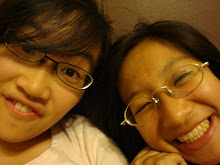
It becomes easy, after reading Hemingway, to say to yourself, "Well, if I lived in Paris, I could write my own moveable feast too. If I lived in Paris, and knew people like Fitzgerald and T.S. Eliot by names like Scott and Major Eliot, I could write anything." Hemingway makes it easy because he writes with a frankness that can be mistaken for simplicity. To be able to create such an illusion is a mark of the mastery of his craft.
There is nothing simple about the sentence, "I found that many of the people I wrote about had very strong appetites and a great taste and desire for food..." Or "There was only the choice of streets to take you back fastest to where you worked." And while the directness with which he lists whose paintings he likes and what people he doesn't like reminds me somewhat of a child telling you which candies he prefers, Hemingway's unflinching observations of the people he encounters reveal an startling acuteness. Hemingway's short stories have often disappointed me, mostly because there seems to be a sense of dryness, a detachment from the characters in his stories. But his reflections on the people in his life, or his on own experiences with writing seem to be accrued with an intimate understanding that intrigues me. He puts things into words that inexplicably make sense, though I couldn't tell you what words themselves mean. What does he mean when he says that Ernest Walsh was "clearly marked for death as a character is marked for death in a motion pictures," or writes of Fitzgerald's mouth,"The mouth worried you until you knew him and then it worried you more"? Yet, Hemingway captures their charms and eccentricities-Fitzgerald's childishness, Ezra Pound as a mother hen, Wyndham Lewis as "the Measuring Worm."
Hemingway was lucky enough to have lived in Paris as a young man, but he also knew how to glean material from the world around him. (He also had writing skills exceptional enough to win him a Nobel.) And while Hemingway's memoirs are both awe-inspiring and intimidating, it is also slightly comforting to think that there will always something to write about, whether you are in Paris in the 1920s or in modern-day Hsinchu, as long as you look in the right places.
"All you have to do is write one true sentence. Write the truest sentence you know."


